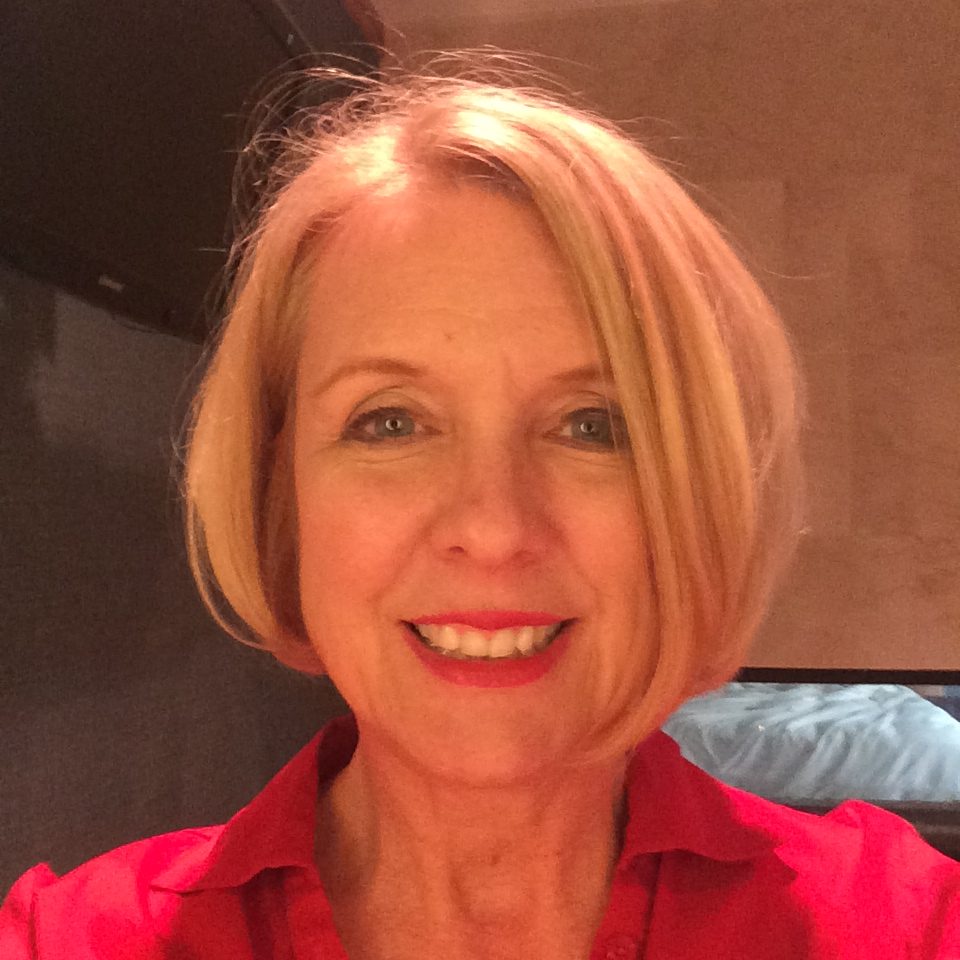This is part 1 of a series about caregiving from a distance. Read part 2 here.
A few years before he passed away, Maria Hood noticed that her father wasn’t shaving or showering regularly, which was unusual, because the retired military man had always been impeccably groomed.
“He wasn’t getting into the shower because he was afraid of falling,” she said. “And his home, normally spotless, was getting messier. The dust bunnies were starting to have babies.”
It was clear he needed help. But her father lived in Florida, and Hood was in New York.
Hood’s dilemma is a reality for millions of Americans: providing eldercare from afar. According to a 2012 Journal of Gerontological Social Work report, nearly one-third of informal caregiving occurs from a distance.
Studies estimate that four to seven million people in the United States are long-distance caregivers, and those numbers are expected to rise as longevity increases and birth rates decline. Mobility factors in too. Adult children move away from their parents to pursue careers; parents migrate to warmer climates when they retire. When the older adult begins to experience medical issues, or mobility or cognitive decline, relocating isn’t always possible for either party.
While the physical and emotional toll of caregiving is well documented, less has been documented about how distance plays a role. What is clear: “Geographic separation can exacerbate care-related stressors,” according to the 2012 report.
“When you live far away, you don’t know what’s going on,” said Hood, a social worker and director of admissions at United Hebrew, a senior care community in the New York metropolitan area. “You are not the person with eyes on the ground.”
Long-distance caregivers don’t handle round-the-clock physical care, but many experience significant emotional and psychological distress. They may feel even more distressed than local caregivers, as researchers Joan Monin, PhD, and Richard Schulz, PhD, were surprised to find in a 2009 study.
Distance can make problems seem worse than they actually are.
“Caregivers who lived farther away, who were the siblings of the primary caregivers, often were more distressed than the caregivers providing the daily support,” said Monin, associate professor at Yale School of Public Health.
Similarly, a 2004 study found that long-distance caregivers were more likely to report emotional distress than caregivers either residing with their care recipients or less than one hour away.
Stress often stems from the perception that a loved one is suffering, whether it’s physical pain, loneliness and isolation, or confusion due to dementia. Distance tends to amplify that perception.
“When you’re not nearby, you may be thinking the situation is bad all the time,” Monin said. “There’s no way to know if things are actually fine if you’re not there. The psychological distress is the ruminating, the feeling that you need to stay vigilant.”
In working with older adults with dementia and their children, Teri Dreher often hears concerns about safety—and feelings of helplessness.
“I call it the fear of unknowing,” said Dreher, a registered nurse and patient advocate who assists older adults and their families. “It’s not understanding what’s going on and being so far away, you can’t do anything except worry.”
Diana Cannon, a companion caregiver for older adults in the Dallas area, serves as “another set of eyes” for families who live out of town. Clients hire her to visit their loved ones in senior living communities, sometimes even in high-end facilities that purport to provide round-the-clock care.
If you hire a caregiver locally, she can report in regularly and even send smartphone videos to reassure you.
“That’s a big source of stress—making sure family members are getting adequate care,” she said. Communities may boast posh facilities and lavish amenities, she said, but don’t always offer consistent care, which usually boils down to the staff person on duty, who’s typically working for low pay.
“You don’t know what’s going on, especially if the person has dementia,” Cannon said. “I’m there to make sure they’re not lonely, that they get turned over regularly [if bedridden], that someone answers when they hit the call button, that they’re being listened to and their medications are being dispensed correctly.”
One of her clients called Cannon an “extra daughter.” The client lives in Houston; her mother lived in a senior living community in Dallas until her death at age 96 in 2018. Because her mother had severe hearing loss, talking over the phone was almost impossible.
“I’d have to scream the whole time,” the daughter said. She hired Cannon to visit and call afterward with updates. Sometimes Cannon even sent short iPhone videos showing how her mom was doing.
Even with the means to pay for extra help, the client said, caregiving from a distance was stressful for her and her sister, who also lives hours away.
“When you’re there with your loved one, you wish you were doing what needed to be done at home,” she said. “When you’re at home, you wish you could be there. Diane was our ‘boots on the ground.’ She helped reassure us that Mom was getting good care.”
Strained Relationships
Family dynamics often complicate the long-distance caregiving situation.
“Distance can invoke a lot of feelings of sadness, guilt and shame,” said Vanessa Sommer, lead family therapist for signature programming at Caron Treatment Centers in Pennsylvania. “The adult child feels guilt for not being able to be an immediate support source. The caregiver who lives far away may feel a sense of rejection if they offer something as support or help, and it’s refused. The parent may feel abandoned. Or they don’t want to be a burden to their kids or to be seen as less than capable.”
The family’s relationship history plays a role too. “Caregiving crises can bring up a lot of old resentments,” Sommer said.
When one adult child lives close to the older adult—and the other lives far away—that can lead to conflicting perceptions of how the older adult is faring.
“The adult child who is closer may have more daily engagement and involvement with the older adult, and they see the changes over a period of time,” Sommer said. “Whereas the distanced child who has only intermittent contact may not necessarily see the physical changes, and that can lead to disagreements.”
It’s not uncommon for siblings to argue over caregiving decisions, especially when medical crises arise, according to Marilyn Gugliucci, professor and director of geriatrics research at the University of New England.
“Just as there are helicopter parents, there are helicopter kids—adult children who are too controlling because they fear losing the parent,” she said. “The older adult may have said, ‘I don’t want to go through heroic measures, I’ve had my life, let me go when the time comes.’ But one of the adult children might feel the need to control their lives to ensure they live longer.” As much as possible, the older adult’s wishes should dictate how to proceed.
It can be difficult to find out from a distance about local resources available for caregivers.
The stress of caregiving often has ripple effects on the relationships with the caregiver’s spouse and children. Sommer, who works with families of older adults with substance abuse disorder, says a stressful caregiving situation usually affects the entire family.
Cognitive loss or personality changes due to dementia can make communication even more problematic. Plus, older adults are often reluctant to admit that they’re having difficulty.
That’s been a challenge for Hood, who is also caring for her in-laws, who live in Tucson.
“So much depends on the prior relationship between the adult child and elderly parent,” said Hood. “My mother-in-law is the most amazing, sweet woman. But is she at her best dealing with a husband in poor health? Not always.”
Family members may get frustrated when an older adult is less than forthcoming, or even dishonest, about their situation. Monin encourages empathy.
“Imagine someone doubting your ability to care for yourself,” she said. “That can be super threatening, even when the parents and children have a good relationship.”
“All you can do is give each other a lot of grace,” said Hood. “Try to put yourself in the person’s shoes. Most older people are fiercely independent. They don’t want to burden their children. They may dread moving into a senior living community or having someone coming into their household. It’s easier to think, ‘I’m OK.’”
Searching for Solutions
Tracking down assistance in another city can also pose challenges. Some communities offer services like daily telephone calls or other welfare checks for older adults. Finding out about those services, however, isn’t easy for those who live far away. Monin thinks policy makers need to assist long-distance caregivers in finding and connecting with resources from afar. She’d like to see a searchable, technology platform that would allow caregivers to find reputable resources in the care recipient’s local area, such as senior community centers, long-term-care centers, hospitals, physicians and other networks of supportive communities.
In the meantime, to keep stress as manageable as possible, experts advise thinking ahead. Anticipate problems, know the older adult’s wishes in the event of an emergency and have a plan.
“It’s all about prevention,” said Barry Wu, MD, professor of medicine (geriatrics) at Yale School of Medicine. “If your loved one falls, for example, you don’t want to be scrambling at the last minute.”
Wu is in Connecticut; his 90-year-old mother lives in Pittsburgh. He relies on technology to help bridge the distance.
“Her mobility has steadily declined over the last few years, so I set up cameras in her room, with her permission,” he said. He can look in on his mother any time from his smartphone. In addition, he calls her once a day, at a specific time, to make sure she’s OK. He assembled a list of local contacts—his mother’s physicians, the security person in her apartment building, neighbors and friends—which he posted on her refrigerator and saved in his phone. When problems crop up, he can call on his brother, who lives in the Pittsburgh area, to step in.
Maria Hood began to travel to Florida more often once her father’s housekeeping and hygiene started to lapse. She hired a housekeeper to tackle some of the household chores, which allowed her father to stay in his home a little longer. Eventually, he moved into an independent living senior community, and then, after an injury, into skilled nursing, where he spent the rest of his days.
In response to her experiences with her father and her in-laws, Hood and her husband sat down with their son and daughter and expressed their wishes for how they’d like to be cared for when the time comes. She draws on her own experience for her job at United Hebrew as she advises families navigating caregiving from a distance.
“The first thing I tell them is, ‘You are not alone,’” she said. “There are a lot of people in the same boat.”

Freelance writer Mary Jacobs lives in Plano, TX, and covers health and fitness, spirituality, and issues relating to older adults. She writes for the Dallas Morning News, the Senior Voice, Religion News Service and other publications; her work has been honored by the Religion Communicators Council, the Associated Church Press and the American Association of Orthopaedic Surgeons. Visit www.MaryJacobs.com for more.



